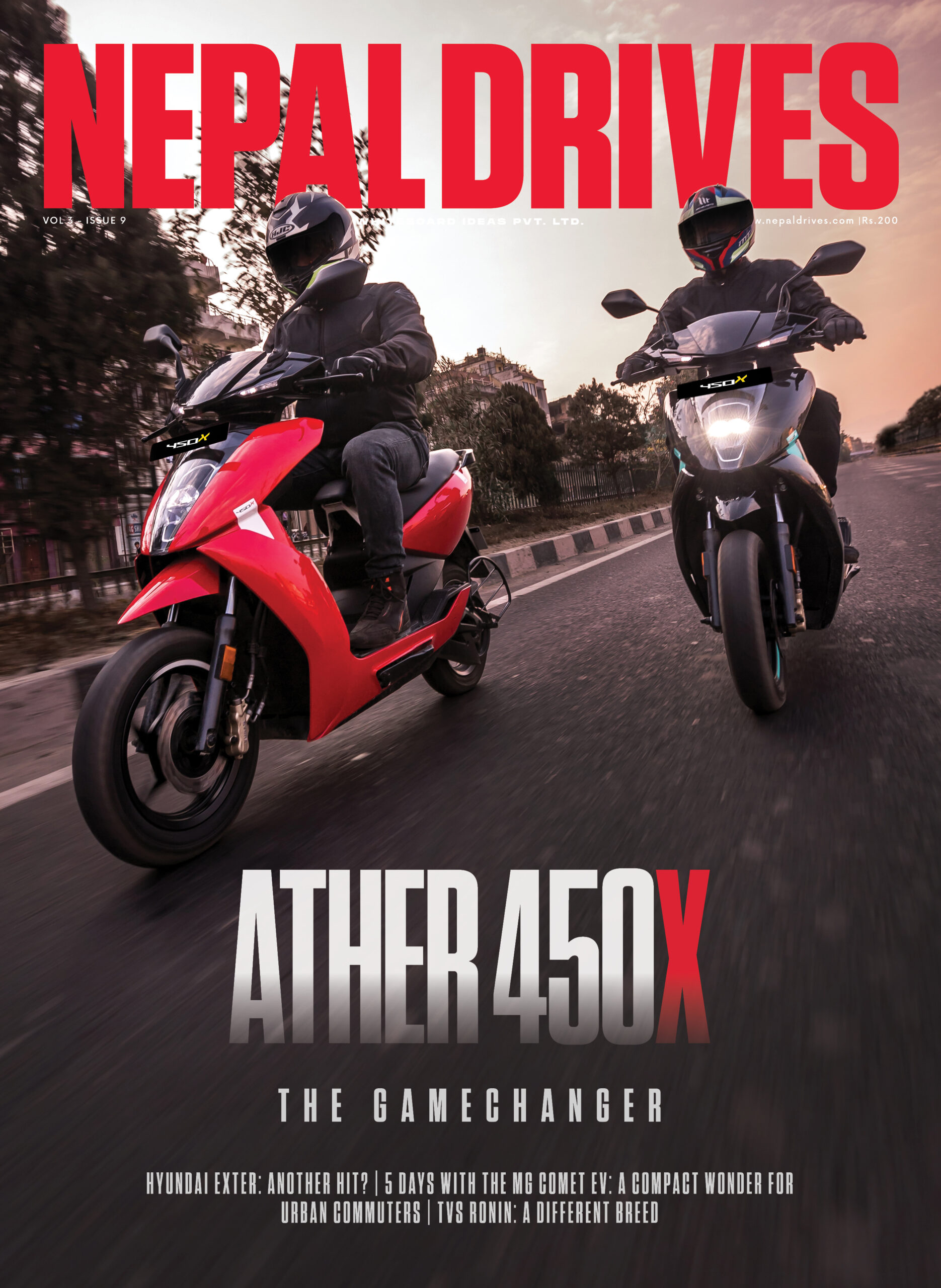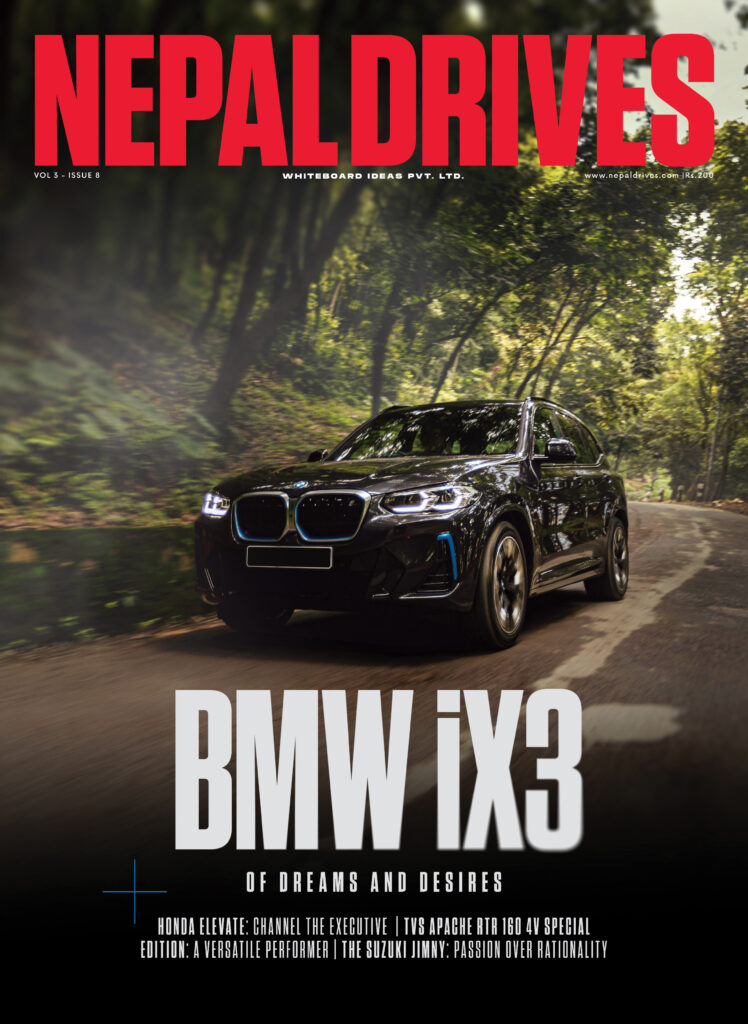The EV Trip: A 25,000 km journey to spread awareness about EVs
Share



There are still plenty of BEV (Battery Electric Vehicle) sceptics out there. In Nepal, it seems that the most common challenge to the viability of the technology is: “show me a BEV that can go from Kathmandu to Pokhara without stress, and I’ll be interested.” Well, that trip seems like a walk in the park next to the epic 25,000km tri-nation trip across India, Nepal, and Bhutan that Ashish and Prafulla have embarked upon on their Tata Motors Nexon EV Max.
“This is a journey to spread awareness about EVs and to break the perception & myths surrounding it”, say Ashish and Prafulla. Following are the excerpts of their exclusive interview with Nepal Drives; the duo behind ‘The EV Trip’ share their experiences and their views on road-tripping with an EV.
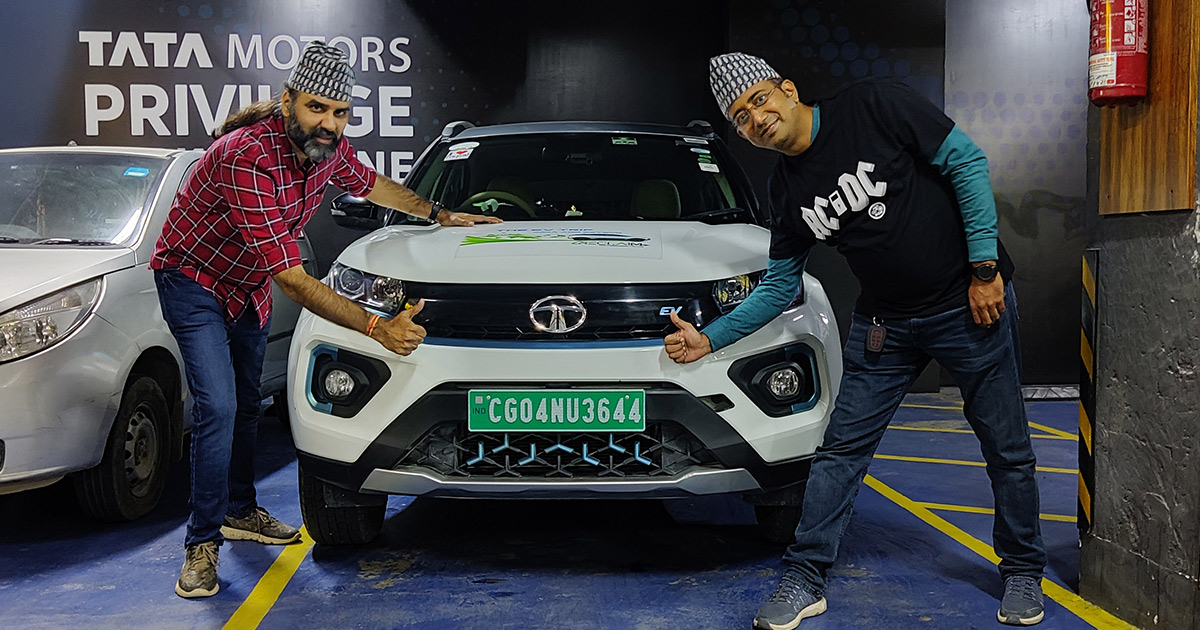
Longer road trips have been the bane of BEVs, but it seems like the narrative is changing. Can you take long trips in EVs?
Ashish: Yes, of course. Contrary to the myth surrounding EVs, it’s a very normal scenario. Whether you are driving a normal ICE vehicle or an EV, it’s more or less the same. It’s all about your driving context.
I have been driving an EV for the last two years and it’s my sole vehicle. When I started out, the infrastructures were still at a nascent stage, however, things have progressed by great margins now. I must say, Tata Motors has done a commendable job in creating an EV ecosystem in India and Nepal. It’s very noteworthy and encouraging.
Prafulla: The evolution to electric mobility is really happening here. I think this is something we would love to see in the future everywhere. Full marks to Tata Motors Nepal.
Did you face any challenges during your journey to Nepal?
Ashish: None at all. You may feel a little apprehensive, but that’s totally normal. However, it is important to make sure you plan carefully before you embark on such a journey. You are travelling every day to new places, hence, you should take note of the available infrastructures and the touch points. Travelling in an EV leads to a few more pre-trip questions and requires a bit more coordination.
Worst case scenario, your vehicle gets stranded, it’s not the end of the world. You can hire a cab, go home, let the company take care of your vehicle and start your journey again. No different from what you would do if you were driving an ICE vehicle.
Prafulla: Why is there such hype surrounding EVs? Tata has already sold more than 50k EVs in India alone within the last two years. That alone speaks volumes about the commitment Tata Motors has shown towards creating an excellent EV ecosystem.
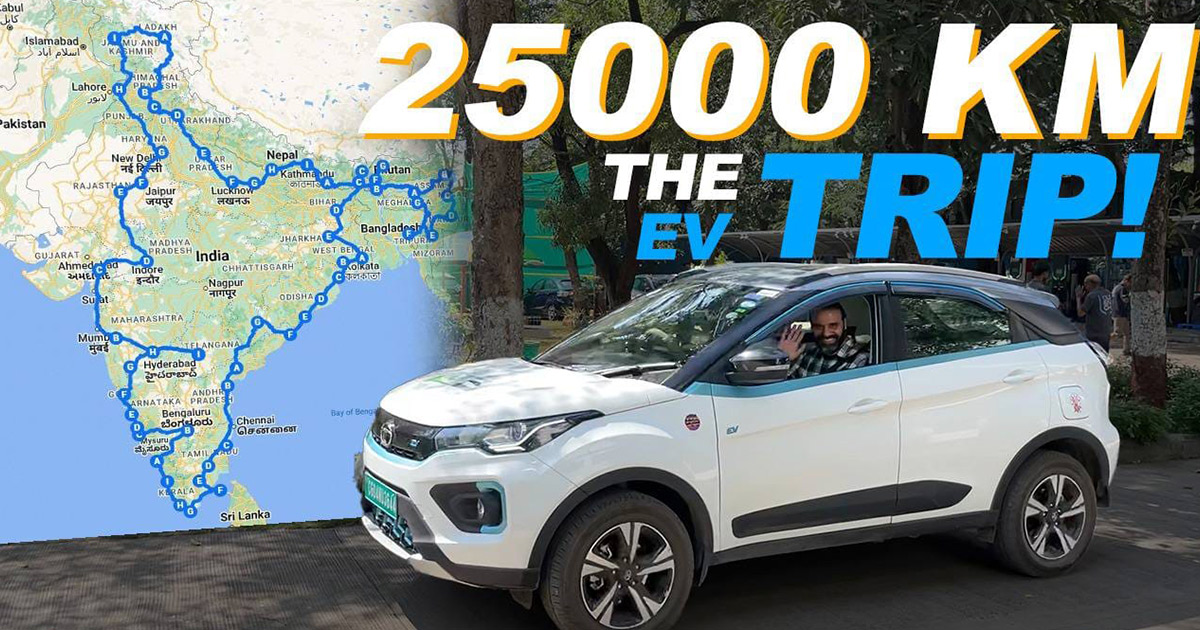
What instigated the beginning of this epic road trip? What have you set out to achieve?
Prafulla: People need to experience what EVs are capable of. Our main target was to cover as much geography as we can within India, Nepal and Bhutan. We plan to cover most of the regional states so that we can reach a maximum number of people. We could have entered Siddharthanagar and returned, but we decided to drive to Kathmandu, Lahan and Janakpur.
Rather than just touch and go, we want to connect with people and explain to them the real-world practicality of travelling on an EV like a normal family would travel. This is something like an extended holiday drive.
Ashish: We want to clear the myths surrounding EVs. We want to educate as many people as we can to break the barriers. We are not doing anything that is challenging. It’s a normal travel trip and we want to enjoy every bit of it. We don’t want to do it for the heck of it. Our main motive is to help the overall EV community.
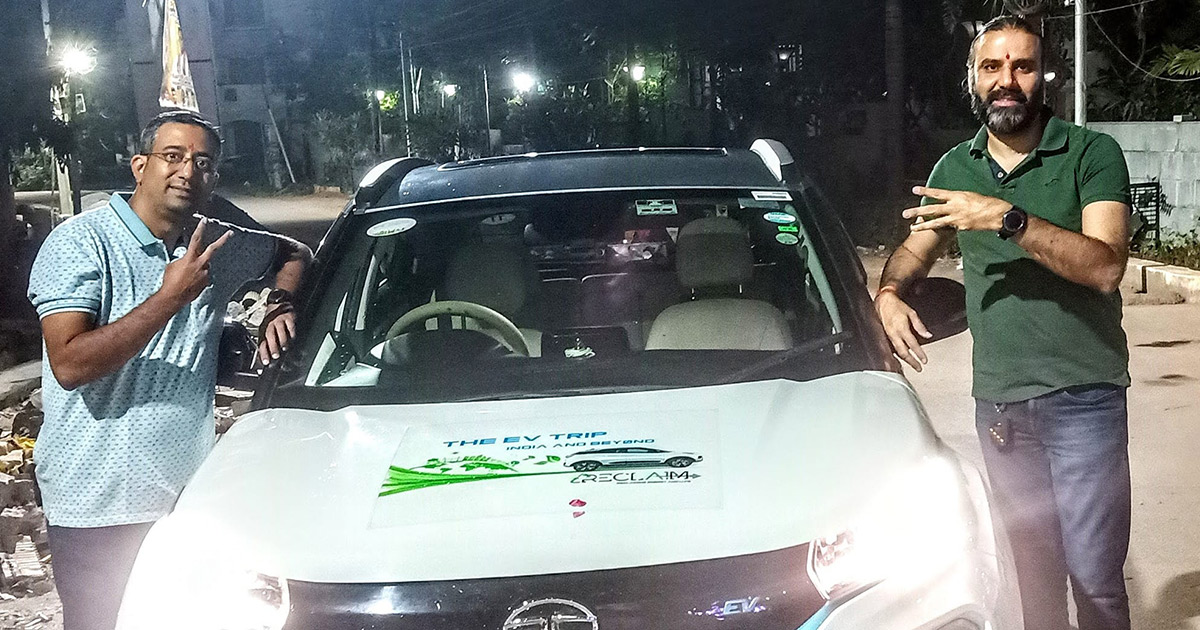
Do you see a quicker adoption of EVs than what people initially estimated?
Ashish: Our atmosphere is becoming polluted every day. The air quality in our cities is degrading every day affecting the people and the environment we live in. It’s high time we switch from a carbon-dependent transportation system to a clean and smart mobility system. EVs can meet our needs for clean mobility and at the same time provide many public health benefits including cleaner air and lesser noise pollution.
Prafulla: As Ashish said, it can be done and we know how we can make it happen. The revolution starts with you and you need to take the first step.



